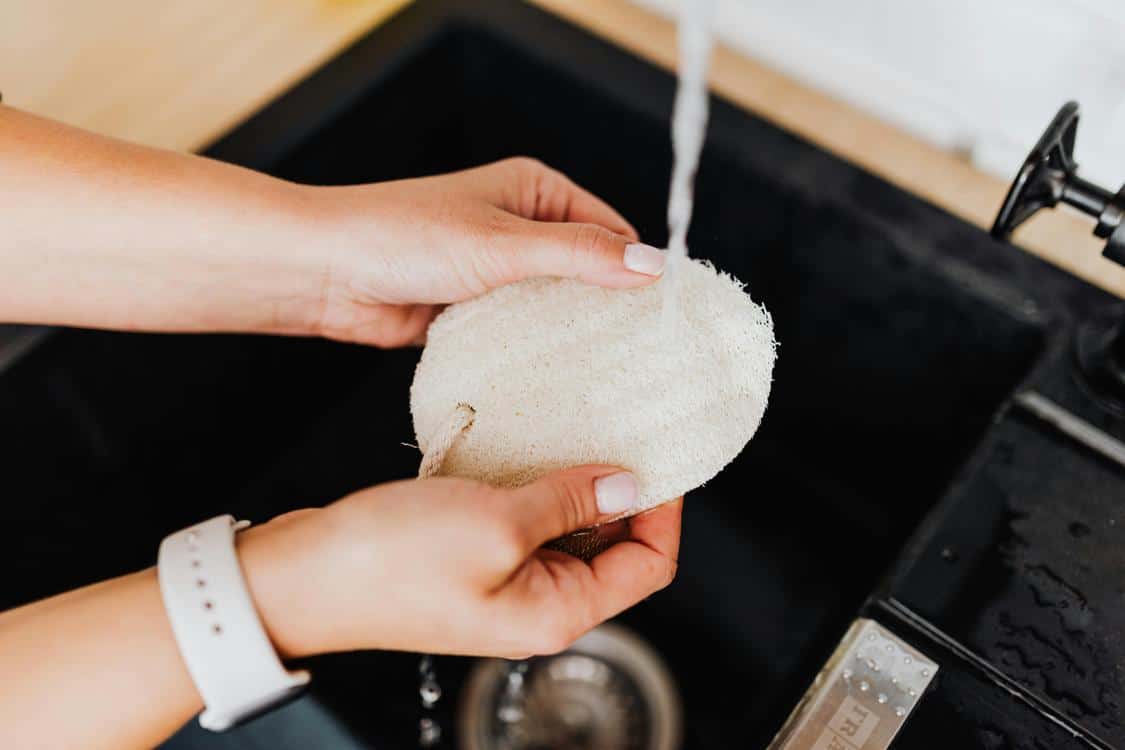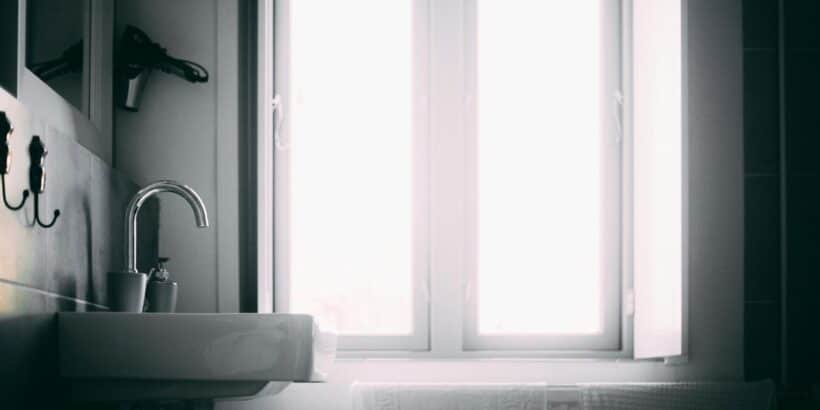When your sink drain smells like rotten eggs or sewage, this is often a sign that there is a problem with the p-trap. Ideally, this U-shaped section of pipe contains water that blocks sewer odors from entering your home.
The first step is to check if the water is still there. If it isn’t, you should run water for a few minutes to allow the p-trap to rehydrate.
Bacteria
Bacteria can grow inside of your sink drain and pipes, especially if you don’t clean them regularly. This bacteria emits sulfur compounds that resemble the smell of rotten eggs. The dark, damp environment of your sink drain and pipes makes it a perfect breeding ground for this nasty stuff.
Aside from causing foul smells, bacteria can also lead to clogged sinks. Over time, food particles and grease can become trapped in your sink pipes, which will block water flow and cause it to stagnate. This can emit unpleasant odors as the food debris starts to decompose.
Another reason your sink may smell is if there is a dead animal in the trap underneath it. The p-trap, which is the U-shaped bend in your drain pipe located beneath your sink, is designed to always contain water. If the p-trap becomes dry, it will allow sewer gases to leak into your home.
To avoid this, be sure to clean your kitchen sink regularly and use a drain cleaner that contains enzymes to prevent biofilm buildup. You can also try dumping a cup of white vinegar or a store-bought cleaning product down your drain to help break down and wash away any gunk that’s built up. Make sure you don’t mix vinegar with bleach, though, as this can produce dangerous and toxic fumes.
When you’re washing dishes by hand, it’s easy to forget to scrape off all the food residue before throwing it in the garbage disposal. This can cause food scraps to get caught in your disposal’s U-bend and compact, which leads to a stinky smell. To prevent this, scrape off any leftover food before putting it in the garbage disposal and rinse your dishes with hot or boiling water. You can also add a handful of coarse salt and lemon peels to your disposal to eliminate odor and keep it working properly.
Sewage
Sewage is the waste produced by people and animals, and it can cause a lot of problems if it escapes into your home. The most obvious problem is the foul odor that it leaves behind. Sewage odors can also cause headaches, dizziness, and nausea. If you smell sewage in your house, open all the windows and doors for ventilation. This will help to remove the odor and make your home safer. If the odor persists, contact a plumber to inspect and repair your sewer line, and very importantly a skilled one, one with knowledge akin to the Anchorage plumbers.
Foul odors from sink drains can be caused by a variety of issues, including a clogged or broken pipe. If a clog is the culprit, you can try to clear it with a plunger or drain snake. If the clog is severe, it may be necessary to disassemble your sink and clean out the trap. You can also use a plumbing smoke test to pinpoint the location of the clog or leak.
If you can’t find the source of the odor, it may be coming from your venting system. Venting pipes take sewage gasses to the roof of your home, but they can become clogged with outdoor debris like bird nests, leaves, or snow. When this happens, the sewage gasses can back up into your sinks and stink.
Another common reason for a sink to stink is food waste. Over time, even the cleanest homes can accumulate odor-causing bacteria or clogs in their drains. You can combat this by cleaning the drain with baking soda, vinegar, or boiling water. To do this, pour a cup of baking soda into the drain, wait for 20 minutes until it begins to froth, then follow with a cup of vinegar or boiling water. Repeat this process weekly to keep your drains smelling fresh.
Mold
Your sink drain and pipes are dark, damp environments — the perfect places for mold and mildew to grow. This is particularly true for kitchen sinks, where food residue and organic matter like hair and grease accumulate. Over time, this matter decomposes and releases a foul odor. The mold and mildew also create a black gunk known as biofilm that collects in your sink drain and pipes.
Biofilm isn’t just smelly, but it can also clog your sink and lead to serious plumbing problems. It’s important to regularly clean your sink and drain to keep it free from this bacterial buildup. You can buy a store-bought drain cleaner that’s designed specifically for this purpose, or you can try a more natural approach: pouring vinegar into your sink with the disposal running. The acidity of the vinegar will kill off bacteria and break down the biofilm.
Foul odors coming from your sink may also be the result of water evaporation in your sink’s p-trap, a U-shaped bend that sits under your drain. The p-trap is designed to always have some water in it, which acts as a barrier to prevent sewer gases from seeping back up through your sink. When this water evaporates, it can allow rotten egg-like smells to enter your home.
If your odor problem comes from the garbage disposal, you’ll need to remove and replace it. If the odor persists, you might have to get a new one altogether. In the meantime, you can use enzyme treatments to rid your sink and disposal of odors caused by food waste. These non-toxic treatments contain living organisms that feed on and eat the organic waste in your drain, helping to break it down and eliminate odors.
Mildew

Mildew can cause a sink to smell, especially in a damp environment. The fungus thrives in warm, dark places and the drain provides an ideal habitat. It feeds on organic debris, such as hair, food and dust particles, passing through the pipes. Mildew also produces spores that can spread to other areas of the home, creating health issues, such as respiratory problems or skin and eye irritation.
The good news is that mildew is less dangerous than mold and tends to be easier to eliminate. The odor it produces is musty and unpleasant, but not nearly as pungent as sewage or rotten eggs. Often, a quick wash with hot water and some soap will do the trick. In addition, you can try washing your sink curtain and tub door, as well as wiping down the drywall around the drain.
In the kitchen, you may notice a sour odor coming from your sink if it is overflowing with water that has a sewage or rotten egg odor to it. This can happen if the water filter isn’t working properly, or if the wax seal that seals the toilet to the flange has melted and is allowing sewer gas into the house.
Alternatively, the smell could be caused by a problem with the plumbing under the sink. There are several things that can go wrong under a sink, including slow draining, leaks and blocked plumbing that prevents the proper release of sewer gases. If you notice a bad smell in your kitchen sink, it’s important to investigate the issue right away to avoid serious health issues. A plumber can help with these types of issues. You can also use an indoor dehumidifier to reduce humidity levels in your home.
Clogged Drain
Regardless of how careful you are with what goes down your drains, there is always going to be something that builds up over time. This can include things like food particles, soap scum, hair products, toothpaste and other organic material. This gunk lines your pipes and attracts bacteria that produce foul odors. The odors are caused by hydrogen sulfide gas produced by the bacteria. This smells a lot like rotten eggs and can be very unpleasant.
Over time, the accumulating material can also form a clog that will block water flow. This is especially common in sinks that don’t get used often. If the clog is due to food particles or hair, this can be fixed with a simple home remedy of pouring baking soda and vinegar down the drain. The soda will expand and absorb the odors while the vinegar will break down any stuck on material. If the clog is more serious, you will need to call in a plumber to fix it before it causes more problems.
Finally, a clogged sink will allow sewer gases to rise up through the drain. This can be particularly bad for health and odors in kitchens and bathrooms. Typically, the cause of this problem is a dried-out P-trap that allows the smelly sewer gases to rise through the sink. A plumber will be able to repair this issue quickly and easily.
If you have a stinky drain in your home, don’t try to tackle it yourself with store-bought drain cleaners that aren’t safe for your pipes or the environment. Instead, call Reimer for professional drain cleaning services that address both the smell and the root of the problem.

